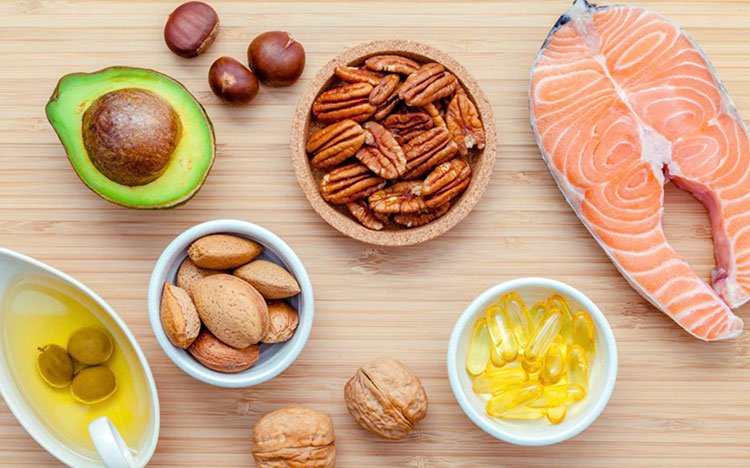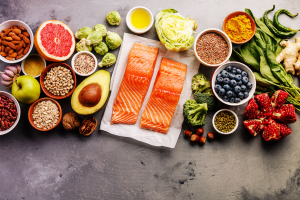Top 10 Foods That May Weaken Your Immune System
The immune system protects the body from communicable diseases such as the common cold and the flu. Nutrition is a crucial aspect of maintaining a healthy ... read more...immune system. Consuming some unhealthy meals regularly may impair immune system function. This may impair its capacity to perform properly. According to some studies, diets heavy in added sugar and salt are linked to an elevated risk of certain autoimmune diseases and other chronic illnesses. This article discusses foods that can make your immune system weaker.
-
There is little question that decreasing your intake of added sugar benefits your general health and immunological function. Foods that dramatically boost blood sugar levels, such as those high in added sugars, stimulate the synthesis of inflammatory proteins such as tumor necrosis factor-alpha (TNF-), C-reactive protein (CRP), and interleukin-6 (IL-6), all of which have a deleterious impact on immunological function.
This is especially true for diabetics, who might have increased blood sugar levels for longer periods of time than persons with well-regulated blood sugar levels. Furthermore, high blood sugar levels may limit the response of neutrophils and phagocytes, two types of immune cells that aid in infection protection. Furthermore, high blood sugar levels have been proven to damage gut barrier function and cause gut flora imbalances, which can affect your immune response and make your body more susceptible to infection.

Added sugar 
Added sugar -
High salt diets may cause tissue inflammation and raise the risk of autoimmune illnesses, thus salty foods like chips, frozen meals, and fast food may damage your immune response. Six healthy males were given 12 grams of salt each day for 50 days in a 2016 research. This was followed by around 50 days of ingesting 9 grams of salt per day, followed by a comparable period of consuming 6 grams per day. Finally, they consumed 12 grams each day for 30 days. The males showed greater amounts of white blood cells termed monocytes and inflammatory markers IL-23 and IL-6 on the high salt diet containing 12 grams per day. They also showed decreased levels of the anti-inflammatory protein IL-10, indicating an overactive immune system.
Salt may also reduce anti-inflammatory responses, change gut flora, and encourage the development of immune cells that are involved in the pathogenesis of autoimmune illnesses. Indeed, studies believe that excessive salt consumption may be linked to the rise in autoimmune illnesses in Western countries. Furthermore, excessive salt consumption has been linked to the worsening of pre-existing inflammatory disorders such as ulcerative colitis, Crohn's disease, rheumatoid arthritis, and lupus. As a result, cutting less on table salt and high-salt meals may help your immune system.
Salty foods 
Salty foods -
To function properly, your body requires both omega-6 and omega-3 fats. Western diets are often heavy in omega-6 fats and low in omega-3 fats. This imbalance has been linked to an increased risk of illness and perhaps immunological malfunction. Diets high in omega-6 fats appear to stimulate the expression of pro-inflammatory proteins, which may impair immune function, whereas diets high in omega-3 fats limit the creation of those proteins and improve immunological function. Furthermore, research on obese persons suggests that high dietary consumption of omega-6 fats may cause immunological dysfunction and raise the risk of certain illnesses such as asthma and allergic rhinitis.
The link between omega-6 fats and the immune response, on the other hand, is convoluted, and additional human study is required. To improve general health, researchers recommend that you maintain a healthy balance of omega-6 to omega-3 fats, which is estimated to be approximately 1:1 to 4:1. This means consuming more omega-3-rich foods like salmon, mackerel, sardines, walnuts, and chia seeds and less omega-6-rich foods such sunflower canola oil, maize oil, and soybean oil.

Foods high in omega-6 fats 
Foods high in omega-6 fats -
Fried meals include a high concentration of chemicals known as advanced glycation end products (AGEs). AEGs arise when sugars combine with proteins or fats at high temperatures, such as when frying. When AGE levels in your body grow too high, they can lead to inflammation and cellular damage. AGEs are considered to damage the immune system in a variety of ways, including causing inflammation, depleting your body's antioxidant systems, causing cellular malfunction, and negatively influencing gut microbes.
As a result, experts believe that a high-AGE diet may increase vulnerability to infections such as malaria as well as the risk of medical disorders such as metabolic syndrome, some malignancies, and heart disease. Reduce your intake of AGEs by limiting your consumption of fried foods such as french fries, potato chips, fried chicken, pan-fried steak, fried bacon, and fried fish.

Fried foods 
Fried foods -
Processed and charred meats, including fried dishes, are rich in AGEs. For example, research that examined the AGE content of 549 meals discovered that the greatest AGE amounts were found in fried bacon, broiled hot dogs, roasted skin-on chicken thighs, and grilled steak.
Saturated fat is also abundant in processed meats. According to some studies, diets high in saturated fats and deficient in unsaturated fats may contribute to immune system malfunction. Furthermore, high-saturated-fat diets may lead to systemic inflammation and impair immunological function. Furthermore, high consumption of processed meats and burnt meat has been related to a variety of ailments, including colon cancer.

Processed and charred meats 
Processed and charred meats -
Many poor health effects have been linked to fast food. Eating it too regularly may also have a negative impact on your immune system. Fast food and highly processed meals can trigger inflammation, increase gut permeability, and cause bacterial imbalance in the gut, all of which can harm your immune system. Bis(2-Ethylhexyl) phthalate (DEHP) and diisononyl phthalate (DiNP), two forms of phthalates, can also be found in fast food. Phthalates can enter fast food through packaging or plastic gloves used during food preparation.
Phthalates are known to damage your body's endocrine system, which produces hormones. They may also induce an increase in the synthesis of inflammatory proteins, which can impair your immunological response to infections and create immune dysregulation. Furthermore, phthalates may limit gut flora variety, which might harm your immune system.

Fast food 
Fast food -
Many foods, particularly those that are ultra-processed, include chemicals to increase shelf life, texture, and flavor. Some of these may have a detrimental impact on your immunological response. Some emulsifiers, for example, which are added to processed foods to increase texture and shelf life, can disrupt gut flora, injure your gut lining, and create inflammation, all of which can lead to immunological dysfunction.
In rat investigations, emulsifiers such as carboxymethylcellulose (CMC) and polysorbate-80 (P80) have been related to immunological dysfunction. Similarly, human and animal studies have revealed that the ubiquitous ingredient carrageenan may cause intestinal inflammation and decrease the immunological response, albeit additional study is needed to fully comprehend these effects. Finally, corn syrup, salt, artificial sweeteners, and the natural dietary ingredient citrate may all have a harmful impact on your immune system.

Foods that contain certain additives 
Foods that contain certain additives -
Consuming highly refined carbohydrates such as white bread and sweet baked products on a regular basis may impair your immune system. These are high glycemic foods that produce a rise in blood sugar and insulin levels, perhaps leading to an increase in the generation of free radicals and inflammatory proteins like CRP.
Furthermore, a diet high in refined carbohydrates may disrupt gut flora, which might have a detrimental impact on your immune system. To boost immunological health, choose healthful, high-fiber carb sources such as starchy vegetables, oats, fruit, and legumes over processed carbohydrates.

Highly refined carbs 
Highly refined carbs -
Immune dysfunction has been linked to a diet high in saturated fats and low in unsaturated fats. Saturated fat consumption can activate particular signaling pathways that cause inflammation, hence impairing immunological function. High-fat diets may also make you more vulnerable to infection by lowering your immune system and white blood cell activity. Furthermore, rodent studies have revealed that high-fat diets might alter gut flora and harm the intestinal lining, thereby raising the risk of infection and illness.
More human research is needed to better understand how various fatty acids influence the immune system. However, eating a well-balanced diet rich in fiber and healthy fat sources is likely to be beneficial to immunological health.

Certain high fat foods 
Certain high fat foods -
Certain artificial sweeteners have been associated with changes in gut flora composition, increased gut inflammation, and a weakened immune response. Artificial sweeteners, such as sucralose and saccharin, may cause gut microbial imbalances, according to growing data. Some experts believe that excessive use of artificial sweeteners may be harmful to immunological health.
Furthermore, certain rat research and a few human case studies indicate that the high consumption of artificial sweeteners may contribute to the advancement of autoimmune illnesses. More research, however, is required. However, not all researchers agree, and others have found that modest daily consumption of such sweeteners causes no changes in gut microbes or immunological function.

Artificially sweetened foods and beverages 
Artificially sweetened foods and beverages































